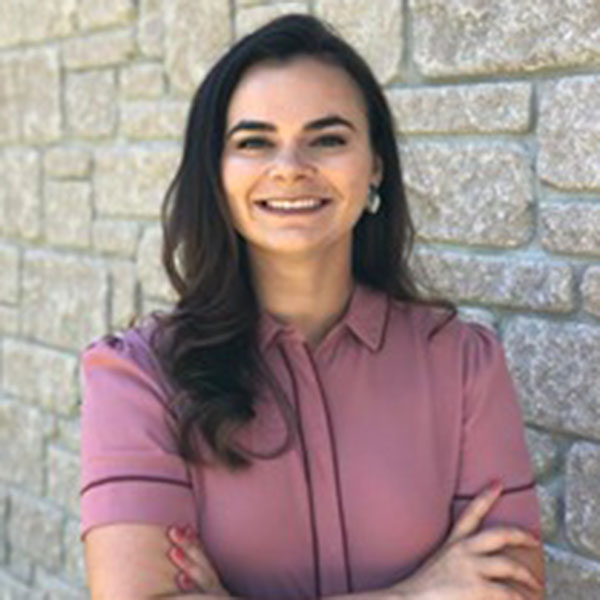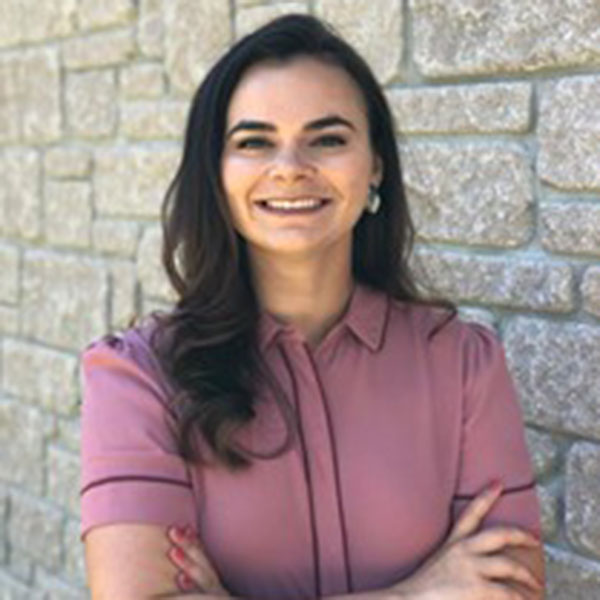How a Lethal Basilar Arterial Stroke Changed my Perspective

On Sept. 23, 2021, I was sitting in the University of Central Florida Health workroom completing a patient note when I received a phone call that changed my life. My dad had a stroke and was being taken to the hospital. The end of my outpatient internal medicine clerkship experience quickly disintegrated into a whirlwind of phone calls, logistics, and ultimately, a one-way flight to my dad's bedside more than a thousand miles away.
As I prepared to board my flight, I received a second phone call, and it was even worse than the first. My dad's basilar artery was occluded. He was unconscious, intubated, and being transferred to a Level 1 trauma center for a thrombectomy. Having just finished my neurology rotation, I couldn't stop the tears from flowing as I recalled the mortality rate that accompanied his diagnosis. I entered the hospital knowing my dad would never wake up, but I kept quiet as my family continued to be optimistic about his prognosis. The next day, the ICU team brought us into the family room and broke the devastating news to my family.
From an epidemiological lens, my dad is just one of many to succumb to the sequelae of a sedentary, standard American lifestyle. For most of his life, he consistently gained weight thanks to a diet rich in steak, dessert and the occasional well-balanced meal. It wasn't until he was diagnosed with diabetes that he decided to mind what he consumed, and at that point, my mother was the driving force behind his change in behavior. Even then, it wasn't enough.
By the age of 56, he had a quadruple coronary artery bypass. Finally, the message hit home: he needed to change his lifestyle. He came home from the hospital and adopted a whole-food, plant-based diet along with the rest of my immediate family. We all witnessed a drop in our BMI, LDL and blood pressure. Most impressively, my dad's medications were reduced in dosage for the first time in his life. Thanks to this major lifestyle change, my parents enjoyed four years of health and happiness. But it wasn't enough to spare my dad from a tragically early death, only four months after his 60th birthday.
In the ACC/AHA Guideline on the Primary Prevention of Cardiovascular Disease, the number one take-home message is: "The most important way to prevent atherosclerotic vascular disease, heart failure, and atrial fibrillation is to promote a healthy lifestyle throughout life." The most striking features of this statement are the words "throughout life." Many of my peers are in their early to late twenties and carry their lives without a thought about personal disease prevention or their future state of health. We live in the present and ignore the fact that our pathology courses clearly state that atherogenic streaks can be seen in arteries in most persons between 20 and 29 years old.
In the realm of disease prevention, our youth is our greatest strength and weakness. As members of a generation not yet faced with chronic disease due to our age, many of us don't feel the urgency of daily health maintenance, nor do we have handfuls of medications to take daily. For this reason, we often live with our earmuffs on and partake in behaviors we would never recommend to our patients (I'm talking to you, energy drink number three on the night before an exam). And yet, we are the members of the health care workforce with a long, demanding career path ahead of us.
Any action or idea we set into motion in our early careers has the chance to gain traction and momentum as we continue to mature as physicians. And so, I challenge all my colleagues to help me in shifting our youthful mindset of "my body can handle it" to one of "my body will thank me later." Let's set the standard for primary prevention behaviors in our own communities and create a culture shift that will ripple into our practices as we earn our degrees and accreditations. The seeds of prevention we sow today will reap the greatest of harvests in our future careers.
Acknowledgements: Thank you to my family, friends and colleagues who have lifted me up throughout this difficult time.

This article was authored by Leonie Dupuis, BS, medical student at the University of Central Florida College of Medicine, Class of 2023. Twitter: @LeonieDupuisMD
This content was developed independently from the content developed for ACC.org. This content was not reviewed by the American College of Cardiology (ACC) for medical accuracy and the content is provided on an "as is" basis. Inclusion on ACC.org does not constitute a guarantee or endorsement by the ACC and ACC makes no warranty that the content is accurate, complete or error-free. The content is not a substitute for personalized medical advice and is not intended to be used as the sole basis for making individualized medical or health-related decisions. Statements or opinions expressed in this content reflect the views of the authors and do not reflect the official policy of ACC.

